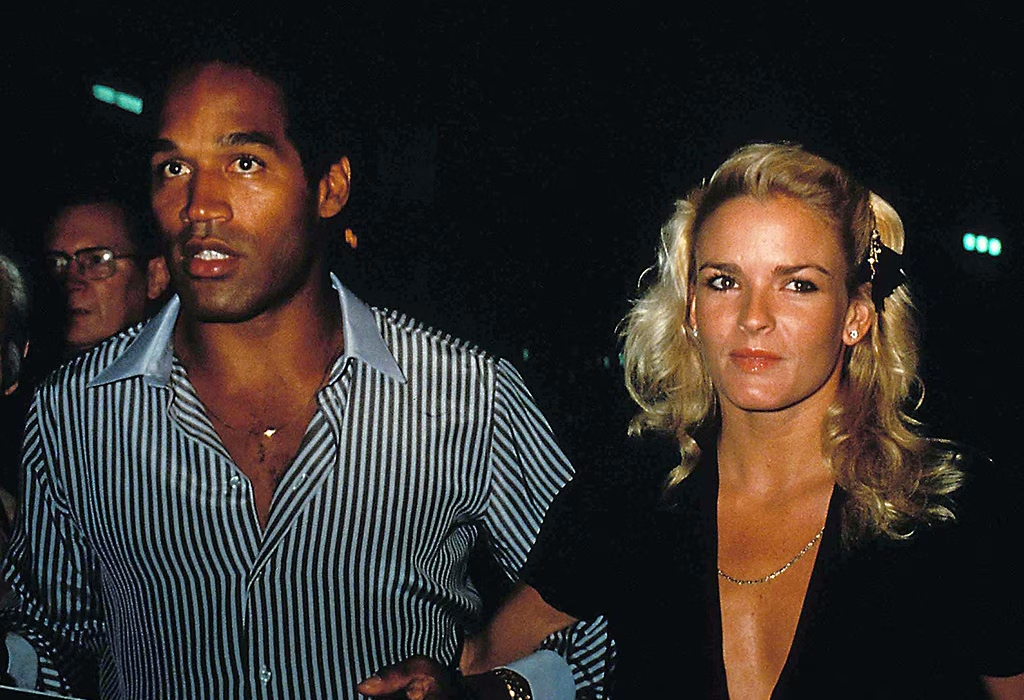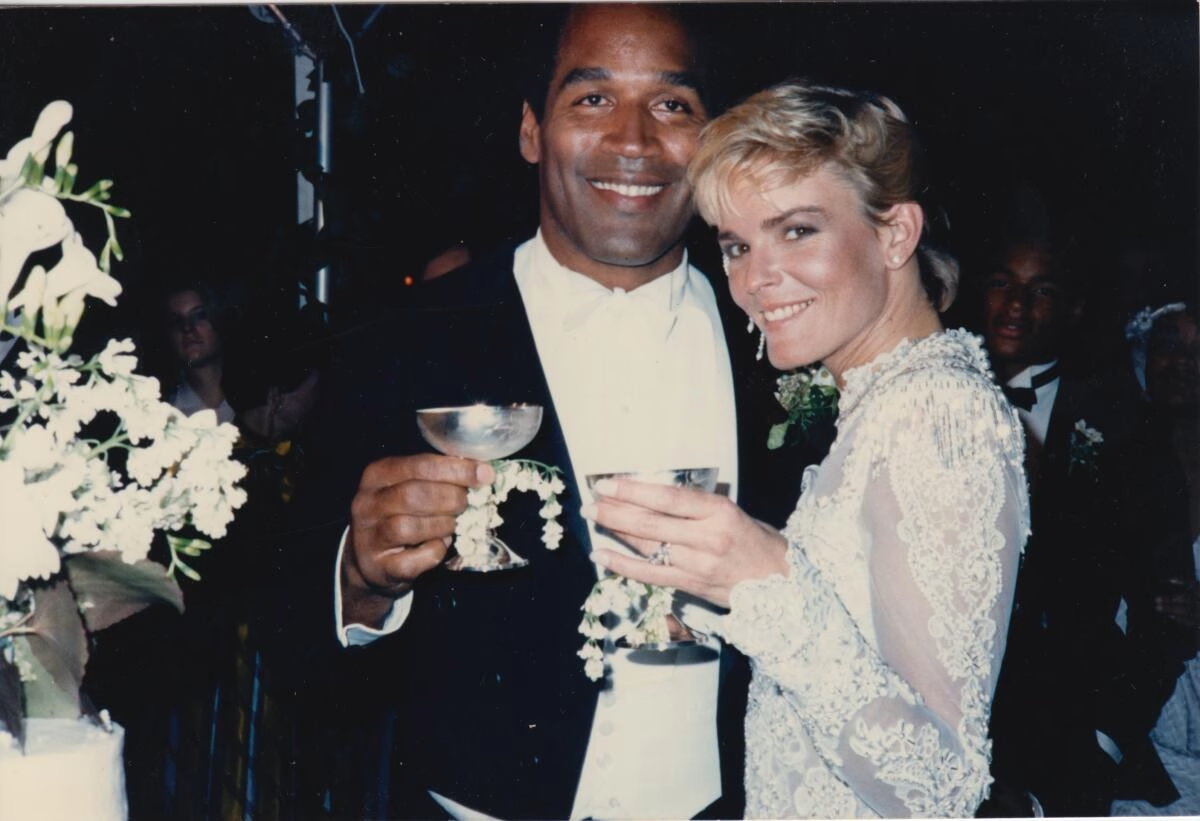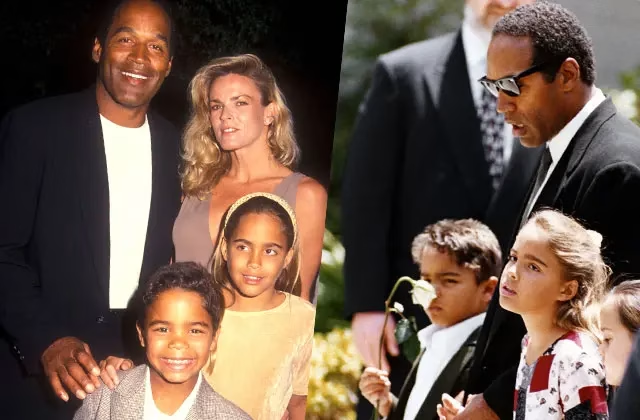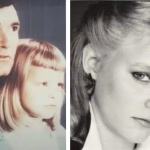The Rise and Ruin of O.J. and Nicole Simpson: Love, Control, and a Tragic End

O.J. Simpson and Nicole Brown Simpson’s relationship began with glitz and charm, but it ended in violence and national horror. Their story is a chilling example of how charm can mask control, and how the warning signs of abuse can be buried beneath wealth, fame, and public image—until it’s too late.
A Glamorous Beginning
Nicole Brown met O.J. Simpson in 1977 when she was just 18 years old, working as a waitress at a Beverly Hills restaurant called Daisy. Simpson, then 30, was already a football legend, a national celebrity, and married to his first wife, Marguerite.
From the beginning, Nicole was swept into Simpson’s high-profile world. Their relationship escalated quickly, with Simpson pursuing her intensely. By the time he divorced Marguerite in 1979, he and Nicole were already deeply involved.
They married in 1985, after nearly a decade of on-and-off dating. Nicole was 25. Simpson was 38.

Marriage and Family
The couple had two children together: Sydney Brooke (born 1985) and Justin Ryan (born 1988). To the public, they appeared to be the perfect family—wealthy, beautiful, and living the American dream in Brentwood, Los Angeles.
But behind the scenes, the marriage was strained by control, jealousy, and violence.
The Warning Signs
Nicole’s friends later revealed that the abuse started early and escalated over time. She kept much of it private, as victims of domestic violence often do, but there were red flags:
- Controlling behavior: O.J. reportedly monitored where Nicole went, who she spoke to, and what she wore.
- Jealousy and rage: He accused her of cheating, often without cause, and became angry when she asserted independence.
- Emotional manipulation: Nicole once told friends she felt like a prisoner in her own life—that he would “make me feel like I’m crazy.”
- Physical violence: Police records show that from 1986 to 1989, officers responded to multiple domestic violence calls at their home.
In 1989, Simpson was arrested after Nicole called 911 in a panic. When officers arrived, they found her beaten and terrified. She later wrote in her diary that the abuse had happened many times before—and that she feared he would kill her someday.
Still, like many survivors of domestic abuse, Nicole stayed for a time. She filed for divorce in 1992, citing irreconcilable differences. Even after their split, Simpson continued to control and harass her.
The Narcissistic Abuse Pattern
Many experts now recognize O.J. Simpson’s behavior as fitting the classic mold of narcissistic abuse:
- Charm and Idealization: In the early years, Simpson was charismatic, generous, and romantic—drawing Nicole in.
- Control and Gaslighting: He isolated her, distorted reality, and undermined her confidence.
- Rage and Punishment: When she tried to pull away, he became increasingly threatening and violent.
- Entitlement and Obsession: He viewed her not as a partner, but as property. Even after their separation, he stalked her, surveilled her, and inserted himself into her life.
Narcissistic abusers often believe that if they can’t have someone, no one can.

The Murder
On June 12, 1994, Nicole Brown Simpson and her friend Ron Goldman were brutally murdered outside her Los Angeles home. She was 35 years old.
Nicole was stabbed multiple times. Her wounds showed signs of overkill—deep, frenzied, and personal. Ron Goldman, believed to have arrived to return a pair of sunglasses, was also killed.
O.J. Simpson quickly became the prime suspect. What followed was one of the most publicized criminal trials in American history. Though he was acquitted in 1995, many still believe justice was never truly served. In a 1997 civil trial, he was found liable for the wrongful deaths of both Nicole and Ron and was ordered to pay $33.5 million to their families.
A Legacy of Warnings Ignored
Nicole Brown Simpson knew she was in danger. She told friends. She called the police. She documented the abuse in journals. But like so many victims of domestic violence, her warnings weren’t fully heard—until it was too late.
Her story has since become a rallying cry for advocates against domestic violence. In the years since her death, Nicole’s family has worked tirelessly to raise awareness and push for stronger protections for abuse survivors.

A Twisted Form of Justice
After his 1995 acquittal, O.J. Simpson remained a free man, though his public image was forever tainted. In 2006, he added fuel to the fire by attempting to publish a book titled If I Did It, in which he hypothetically described how he would have murdered Nicole and Ron—if he had been the killer. The book, packaged as “fiction,” was widely condemned as callous, grotesque, and a slap in the face to the victims’ families. The Goldman family ultimately won the rights to the book in court and released it with the word “If” minimized on the cover—so it reads: I Did It.
Then, in 2007, something unexpected happened.
Simpson was arrested in Las Vegas for armed robbery and kidnapping. He and a group of men stormed a hotel room, attempting to retrieve sports memorabilia he claimed belonged to him. It was a brazen, clumsy act, but the consequences were serious. In 2008, O.J. was sentenced to 33 years in prison, with eligibility for parole after 9 years.
For many, especially the families of Nicole and Ron, the sentence was a long-awaited—if indirect—form of justice.
Even though the charges had nothing to do with the murders, the courtroom atmosphere was electric. The judge, the prosecution, and even the public seemed to carry a heavy, unspoken subtext: We didn’t get him the first time. But we’re getting him now.
Simpson served nine years behind bars, and was granted parole in 2017. He died on April 10, 2024, after a battle with cancer. Even in death, he remained a divisive figure—seen by some as a fallen icon, by others as a murderer who escaped justice.
But for many, his years in prison were the closest thing to accountability he ever faced.

Remembering Nicole
Nicole Brown Simpson’s life was so much more than the way it ended. She was a devoted mother, daughter, sister, and friend—someone who loved deeply and tried desperately to protect her children from a man she once loved.
Her murder, and the years of abuse that preceded it, remain a stark reminder of what happens when red flags are ignored, when power goes unchecked, and when victims aren’t believed.
And while O.J. Simpson may have avoided conviction for her murder, his downfall—both public and legal—stands as a reminder that truth has a way of surfacing, even years later.
Final Thoughts
The story of O.J. and Nicole Simpson is not just a Hollywood tragedy—it’s a textbook case of how narcissistic abuse escalates when ignored. Charm can hide control. Fame can shield violence. And love, when twisted by power, can become lethal.
Nicole didn’t die because she made poor choices. She died because someone made a deadly decision to control her, no matter the cost.
Her story matters. And remembering it might help save someone else.










